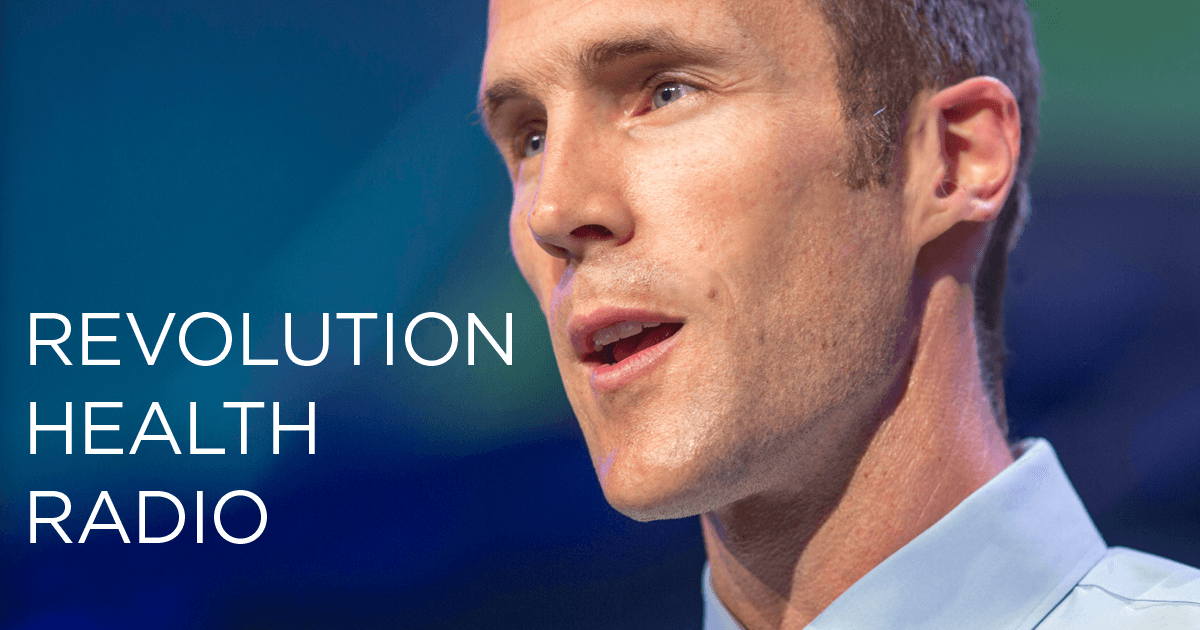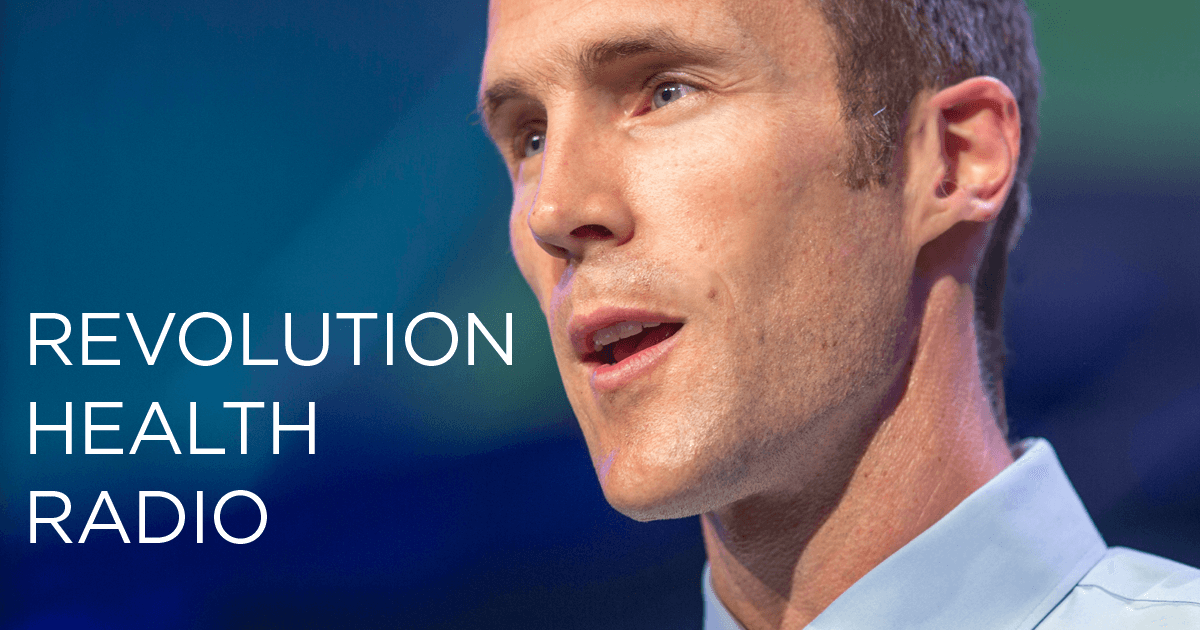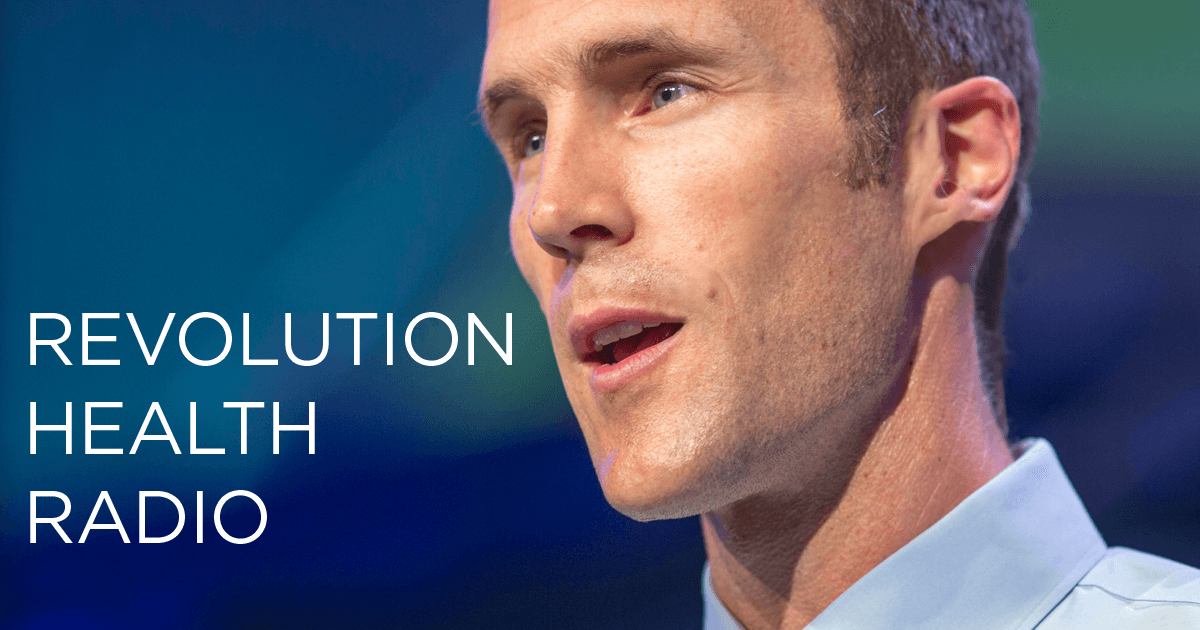
How to Become a Health Coach in 4 Steps

When I speak in public about my work and what we can do to prevent and reverse chronic disease, I often meet people who have been positively impacted by my message. I have seen firsthand the many benefits that Functional Medicine and ancestral health can have on health. That proof—and the positive feedback—is what drives me and motivates me to keep pushing ahead in Functional Medicine, helping people improve their everyday health and live their lives to the fullest.
Are you interested in health coaching? Check out this article for four steps to becoming a health coach. #healthylifestyle #changeagent #kresserinstitute
Health coaches get a front-row seat to personal wellness transformations every day. Through their work, they help people break free from chronic illnesses such as obesity, diabetes, and autoimmune disorders; they’re there for people who have struggled to implement difficult diet and lifestyle changes recommended by their doctors; and they empower people to take charge of their happiness and well-being by changing up their daily routines and habits. Health coaching is so much more than a job—it’s a calling. If you want to join this movement and help your future clients achieve gratifying and dramatic transformations, welcome! The future needs you, now more than ever.
But how can you get started down this path? The good news is that there are some definite steps you can take to become a health coach. Here’s how to begin.
Free eBook
How to Build a Career in Health Coaching
If you’re committed to reinventing healthcare, a career as a health coach could be the right step forward. Find out what job opportunities exist, and why there’s no better time than now to become a health coach.
I hate spam too. Your email is safe with me. By signing up, you agree to our privacy policy.
What Health Coaches Do
Health coaches are partners for people who are battling chronic illness or trying to prevent a chronic condition and trying to embrace a healthy lifestyle, and they’re crucial in the fight against the rapidly spreading chronic disease epidemic.
In the United States:
- Seven out of every 10 deaths occur due to chronic illness (1)
- Six out of 10 people have a chronic condition, while four in 10 have several (2)
- Around 25 percent of children have a chronic illness (3)
Globally, the healthcare costs associated with treating obesity, autoimmunity, diabetes, cardiovascular disease, and other conditions are projected to hit $47 trillion by 2030. (4) Given the current state of public health, it’s clear: we need health coaches now, more than ever.
The work that health coaches do is incredibly important. They partner with people to help them navigate the difficult process of behavioral change. They offer support, empowerment, and accountability to their clients—tools that can mean the difference between success and failure when a person attempts to change their behavior for the better. Coaches act as facilitators for healthy change, supporting their clients as they take action, create plans, and achieve wellness goals based on the clients’ own desires, experiences, and interests. (5) Health coaching has been shown to have a positive impact for people with a number of conditions, such as hypertension, heart disease, diabetes, and obesity. (6)
What It Takes to Be a Health Coach
To help others achieve optimum health and get results, a health coach taps into a unique skill set as well as specific tools and techniques. Some of those are what we call “being” skills, or those skills we use in the way we “be” with people: being a good listener, a great communicator, an empathetic person, and someone who can ask powerful questions. Health coaches also rely on different methods and approaches, including:
- Positive psychology, which emphasizes building on what’s working
- Motivational interviewing to help clients figure out their own reasons for wanting to change
- Recognizing the stages of change, which differ from person to person and moment to moment
- Supportive goal setting, or assisting clients as they craft their own visions for their lives and helping them establish short- and long-term goals so they can embrace accountability, stay on track, and achieve what they set out to do
For more on what health coaches do and what it takes to become one, check out my article “What Is a Health Coach?”
How to Become a Health Coach in Four Steps
Health coaching is a highly flexible career, and there isn’t just one way to coach clients. There also isn’t just one path to becoming a health coach—but based on my experience in this space, I firmly believe some paths are better than others, for both the coach and the client. With that in mind, I’ve laid out some general steps below to get you started. Always remember that you have the opportunity and flexibility to create the type of career that you want—which is just one of the many benefits of working as a health coach.
1. Choose a Board-Certified Health Coach Training Program
Your first step to becoming a health coach is the most important one: pursue health coach training. Specialized training or education is a given for many careers, but with an emerging profession like health coaching, some people hold the mistaken belief that little to no training is required. This is absolutely not true. The work of a health coach is difficult; it takes knowledge, finesse, and practice to help clients succeed in their health goals. While you don’t need a specific healthcare-related degree to enter this field, you do need good quality training—and I highly recommend choosing a certification program that will allow you to pursue credentials from the National Board for Health & Wellness Coaching (NBHWC).
Pursuing in-depth health coach training doesn’t just prepare you for the day-to-day realities of your own coaching practice. On top of that, when you pursue and ultimately possess such credentials, it has a ripple-like effect, as you’re raising the public profile and acceptance of the profession in general. That, in turn, helps doctors understand how their clinics could benefit from hiring a health coach and helps future clients realize the ways they could thrive by working with a health coach. Both of those things will do wonders for the growth of the profession and for public health as a whole.
How to Choose the Right Health Coach Training Certification Program
Choosing the right certification program will allow you to build the specific type of health coaching career that you envision, so it’s worth giving this process a lot of thought up front. You’ll learn the ins and outs of coaching along with the information you need to succeed in your chosen niche and market.
When I created the ADAPT Health Coach Training Program, my goal was to offer students the training they needed to succeed as Functional Health coaches—coaches who use their deep understanding of Functional and ancestral health to inform their work with clients. I imagined the background and expertise I wanted to see in a health coach working in my own Functional Medicine clinic, the California Center for Functional Medicine (CCFM). In my mind, that means someone who:
- Has mastered the skills and competencies needed to coach
- Understands the core principles of Functional Health
- Has a deep understanding of an ancestral diet and lifestyle
- Is comfortable collaborating with Functional and integrative medicine practitioners and other healthcare providers
What does an experienced health coach look like to you? What background would you need to be successful in this career? Spend some time envisioning that future for yourself, and then seek out a program with a curriculum that will support it.
Becoming a Board-Certified Health Coach
As I mentioned, it’s important to choose an NBHWC-approved health coach training program—like the ADAPT Health Coach Training Program. Together with the National Board of Medical Examiners, NBHWC establishes professional standards for health coaching as a profession. The organization maintains a list of competencies and skills that health coaches need to be effective and offers a nationally recognized credential to coaches who qualify. That is the National Board Certified Health & Wellness Coach (NBC-HWC) credential, and it’s the gold standard in the profession.
Without a certification from an NBHWC-approved program, you can’t qualify for the NBC-HWC credential. Approved programs have met the rigorous standards set by the NBHWC on details like course content and delivery, student skills development and evaluation, and the qualifications of faculty members. Finding the right program is a critical first step toward your future.
The NBC-HWC credential also ties in with developing standards for health coaches. The American Medical Association (AMA) has created Category III Current Procedural Terminology (CPT) codes for health and well-being coaching (effective January 1, 2020). CPT codes are used in the medical industry to report various procedures and services to physicians, accreditation organizations, and health insurance companies. The AMA went on to say that only health professionals certified by the NBHWC or the National Commission for Health Education Credentialing, Inc. (NCHEC) can use the new codes—essentially defining a health coach as someone who has been certified by the NBHWC or NCHEC.
It’s important to note that Category III CPT codes are not subject to health insurance reimbursement, but this is a major step in the right direction. It’s also another reason why it’s well worth it to pursue board certification as a health coach.
For more information on choosing a health coach training program:
2. Dive in and Practice Your Health Coaching Skills
Becoming a health coach isn’t a matter of simply acquiring new information; it’s a practice that takes practice, and it’s incredibly transformative. Being an effective coach means being mindful, self-aware, great at communicating, capable of self-actualization, and emotionally intelligent. A good training program will teach you how to develop these qualities if you don’t already have them. And if you do possess some or all of these skills, a good program will push you even further to tap into your strengths. Either way, be ready to put in the work to build up these qualities. That aspect of your training can be an intense experience—but also an intensely rewarding one.
Mastering the Art of Health Coaching Takes Time and Practice
Health coaching is a hands-on profession, and you’ll need opportunities to practice your skills as you’re learning them. Just as you wouldn’t expect to become a star basketball player from reading books about the sport or watching it on TV, you can’t become a health coach without having chances to practice and get feedback from masters in the profession. Be prepared to spend time working on your coaching (the ADAPT Health Coach Training Program lasts a full year), and keep in mind that you’ll need to conduct practice coaching sessions while you’re enrolled in training.
Coaching sessions are also crucial if you want to earn your ADAPT-Certified Functional Health Coach or NBC-HWC credential. As part of the requirements for either certification, you’ll need to submit a log of practice coaching sessions—all the more reason to build practice into your learning process!
Your training program should prepare you for that process. I’ve found the best way to do this is through a curriculum that includes:
- Lessons, videos, and low-stakes quizzes—which tend to improve understanding of the material and recall ability (7, 8)
- Practical opportunities to apply the skills you’re learning
- Chances to get feedback from mentors and faculty
- Time to reflect on your progress
- Opportunities to connect with peers
I can’t overstate the importance of practice, mentorship, and feedback. The program you choose should offer both group mentor coaching and one-on-one feedback and evaluation, as well as plenty of time for you to practice.
Before the NBHWC approves a health coach training program, it requires a minimum of 75 contact hours of training and education that cover coaching structure, coaching process, and ethics/legal considerations.
In the ADAPT Health Coach Training Program, we have one of the most rigorous programs for practice, mentorship, and feedback:
- We provide more than 80 hours of content in the art and practice of coaching.
- ADAPT requires additional small-group Mentor Coaching Sessions every week in the first half of the course and every other week in the second half of the course for an additional 60+ hours of learning, practice, and feedback.
- ADAPT includes structured Peer Partner Practice each week of the year-long course, and we require our students to devote an additional hour per week in the Practicum to actual practice coaching with real clients.
- The ADAPT Health Coach Training Program provides 65 minutes of one-on-one personalized feedback on students’ individual coaching sessions.
This adds up to a substantial amount of experiential learning, and that’s what makes great coaches.
Once you enroll in health coach training, your goal as a student should be to fully engage with the course material and seek ample opportunities to practice what you’re learning. I recommend spending at least three-quarters of your time practicing and only one-quarter reading and acquiring new information.
More about what it’s like to work as a health coach:
3. Pursue Health Coach Certification
In the ADAPT Health Coach Training Program, we offer the ADAPT-Certified Functional Health Coach (A-CFHC) certification. That credential signifies that our health coaches have demonstrated the specific knowledge, essential skills, and professional behaviors needed to act as safe, effective Functional Health coaches for their clients. A health coach with the A-CFHC credential is experienced in the art and practice of coaching and has a solid understanding of Functional Health.
Earning a health coach certification demonstrates your commitment to the profession and allows you to seek out job opportunities specifically for certified coaches. In many cases, becoming a certified health coach also gives you the chance to network with fellow graduates of your program and other healthcare practitioners. In ADAPT, for instance, our certified health coaches can network with graduates of our ADAPT Practitioner Training Program via an alumni forum. That gives them the opportunity to connect and collaborate directly with licensed Functional Medicine practitioners. Earning your certification from an NBHWC-approved program—like ADAPT—also allows you to sit for the NBC-HWC exam.
Passing the NBC-HWC Exam
If you are pursuing health coach certification and the NBC-HWC credential, you’ll need to pass a series of requirements from the NBHWC:
- You need an associate degree or higher in any field or at least 4,000 hours of work experience (note: you don’t need a bachelor’s degree to become a health coach).
- You must have a certificate of completion from an NBHWC-approved health coach training program.
- You have to submit a log of 50 coaching sessions.
- You must pass the certifying exam.
The exam will test you on four core areas of health coaching—coaching structure, coaching process, health and wellness, and professional ethics and legal considerations—over the course of 150 multiple-choice questions and four and a half hours. It’s given only at approved testing centers a few times per year, and you need to apply in order to take it.
The certifying exam may not be on your radar now, but it’s a requirement you should be aware of, even if you’re in the early stages of planning to join this profession. You will need to attend (and graduate from) an approved program in order to qualify for taking the certification test, points to consider well before you enroll in training.
The Value of Being a Board-Certified Health Coach
Becoming a board-certified health coach is well worth the effort. Your NBC-HWC credential will signal to potential employers and clients that you’ve completed the training you need to coach effectively. The credential (and the NBHWC as an organization) lends credibility to the profession as it grows and establishes clear standards for health coaches. That further integrates health coaching into our existing healthcare environment, which means more people will have access to coaches (and there will be more job opportunities out there for you).
Additional resources about the NBC-HWC exam:
4. Choose Your Health Coach Career Path
Health coaching is already a $6 billion market—and the profession shows no signs of slowing down. (9) According to the U.S. Bureau of Labor Statistics, job growth among health educators and community health workers is expected to grow by 11 percent by 2028, which is much faster than other occupations, on average, in the United States. (10) More than 100,000 health coaches are already working in this field and awareness is growing among the public as more people enter this profession. (11, 12) There is ample opportunity to forge a career in health coaching, and plenty of flexibility for you to build a practice that reflects your goals and interests.
Career Options for Health Coaches
If you’re thinking ahead about where you’ll find work as a coach, you have plenty of options. More and more organizations, large and small, are hiring health coaches as full-time staff members. If you’re looking for full-time employment, you can find work:
- As part of a private clinic (like CCFM) or an institutional clinic (like the Cleveland Clinic)
- In employee wellness programs in large corporations
- With primary care groups like Iora Health
- In general health and wellness companies
Some coaches prefer to open up their own private practice, where they have the freedom and flexibility to set their own hours and focus on a specific type of clientele. Others choose to collaborate closely with Functional or integrative medicine practitioners, helping clients implement recommended treatment plans and supporting them through diet and lifestyle changes. And still more coaches build a hybrid career path where they split their time between full-time work, private clients, and collaborative relationships with other healthcare providers.
There are also plenty of options for how you work as a coach. You can create a completely virtual practice, where you meet with clients over the phone or via video conferencing, you can focus on in-person consultations, or you can accept a mix of both. You can also choose to coach in one-on-one sessions with a single client each time, or you can work with groups and classes—or again, choose a mix!
As you imagine yourself becoming a health coach, how do you envision the details about how you do your work?
For more on building a career in health coaching:
We need inspired, motivated, well-trained health coaches, now more than ever, and there are plenty of opportunities for you to build a career that allows you to act as a force of positive change. If you’re interested in building a future as a Functional Health coach, I encourage you to check out the ADAPT Health Coach Training Program.






